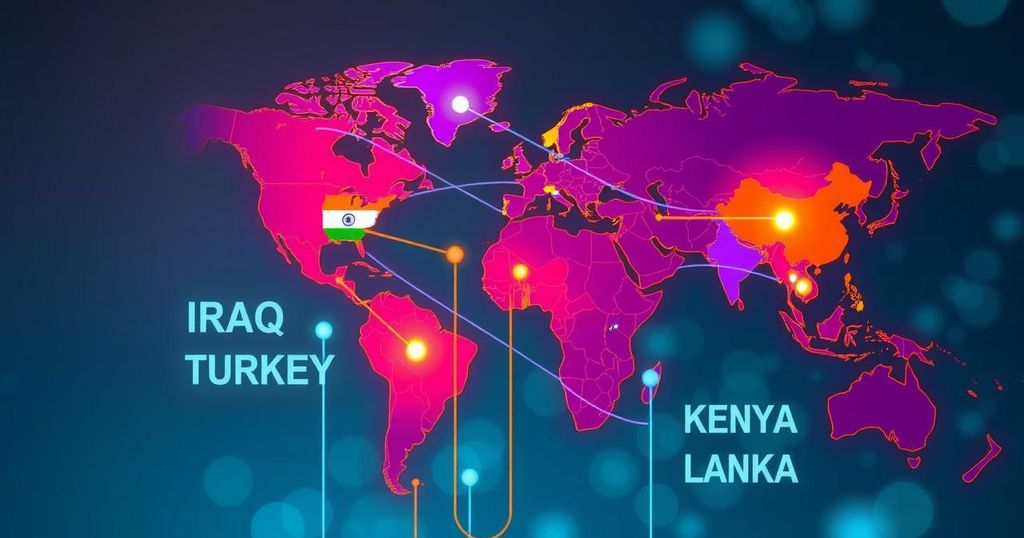Iraq has replaced its visa-on-arrival system with an electronic visa system, joining several countries in modernizing travel processes. This change aims to improve security, decrease wait times, and enhance immigration compliance. As e-visas become the norm, travelers must secure them prior to entry to ensure smooth international travel.
Iraq has taken a significant step in modernizing its travel procedures by joining India, Brazil, Turkey, Australia, Kenya, and Sri Lanka in replacing the visa-on-arrival system with an electronic visa (e-visa) system. This shift aims to enhance security, decrease wait times at border checkpoints, and streamline the immigration process for international travelers. The implementation of e-visas will address the need for improved immigration compliance and will facilitate a more efficient application process for visitors.
As of this month, travelers from affected countries must apply for an e-visa prior to entering Iraq through the official online platform. This new regulation is projected to diminish waiting periods at borders and simplify entry procedures, ensuring adherence to immigration policies. Previously, the system permitted visa-on-arrival, allowing visitors to obtain a 60-day visa upon entry into Iraq via various points.
The removal of the visa-on-arrival applies to various countries, including Austria, Belgium, Germany, Ireland, and the United Kingdom, among others. It also extends to travelers from Australia, Canada, China, Japan, and the United States. Hence, individuals from these nations are urged to secure an e-visa ahead of their travels to prevent any inconveniences upon arrival.
Iraq’s move towards an e-visa model aligns it with global trends in modernizing border management and enhancing security. Many countries have phased out traditional visa-on-arrival systems in favor of efficient, pre-approved electronic entries. Despite these changes, Iraq remains focused on fostering smoother travel through ongoing efforts to establish visa exemption agreements with multiple nations.
In a notable initiative in September 2023, Iraq signed a mutual visa exemption agreement with Indonesia for holders of diplomatic and service passports, emphasizing the importance of easing entry barriers to bolster diplomatic and economic ties. The discussions underscored Iraq’s aspiration to extend similar arrangements to other nations in the future.
Iraq’s adoption of the e-visa system not only marks a pivotal policy transformation but also reflects a broader international trend towards digitalization and improved travel efficiency. As visa-on-arrival systems decline globally, travelers are encouraged to remain vigilant and obtain the necessary documentation prior to their travels, ensuring a smoother journey.
Iraq, the cradle of civilization, boasts a mix of ancient culture and modern cities, inviting travelers to explore its rich heritage. Cities like Baghdad, Erbil, Basra, Najaf, Karbala, and Mosul each offer unique attractions and local experiences ranging from serene boat rides along the Tigris River to the spiritual ambiance of sacred sites. The revival of Mosul illustrates Iraq’s dedication to cultural restoration, making it an increasingly vibrant travel destination.
The transition to an electronic visa system by Iraq marks a significant shift towards modernizing travel procedures and improving border management. The move aligns Iraq with several other nations, indicating a global trend towards digital travel solutions. As Iraq embraces this change, international travelers should ensure they are aware of the updated entry requirements to facilitate hassle-free travel experiences. The encouraging development of Iraq’s cities also highlights the country’s rich cultural landscape, making it a compelling destination for visitors.
Original Source: www.travelandtourworld.com






